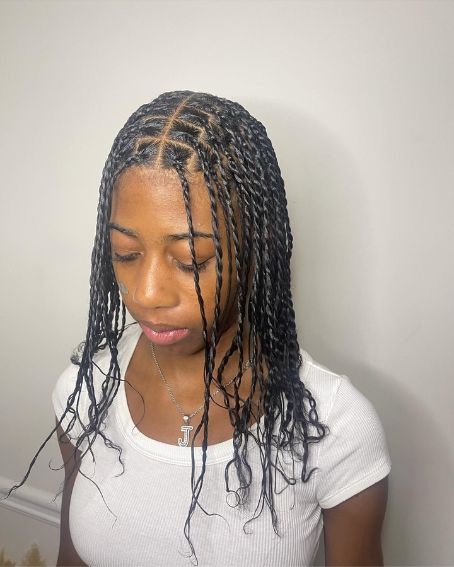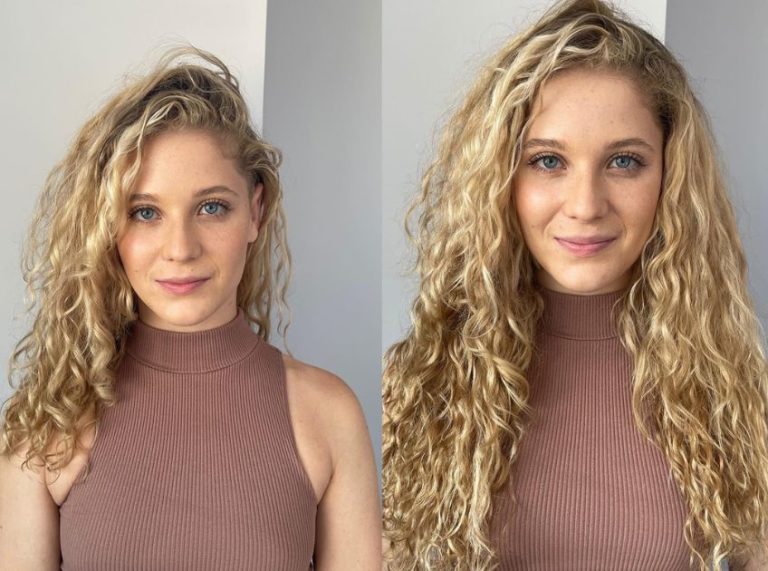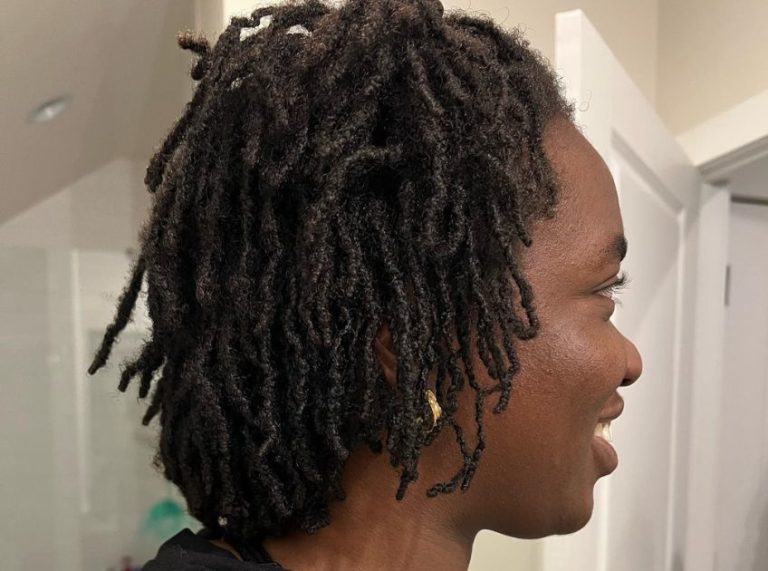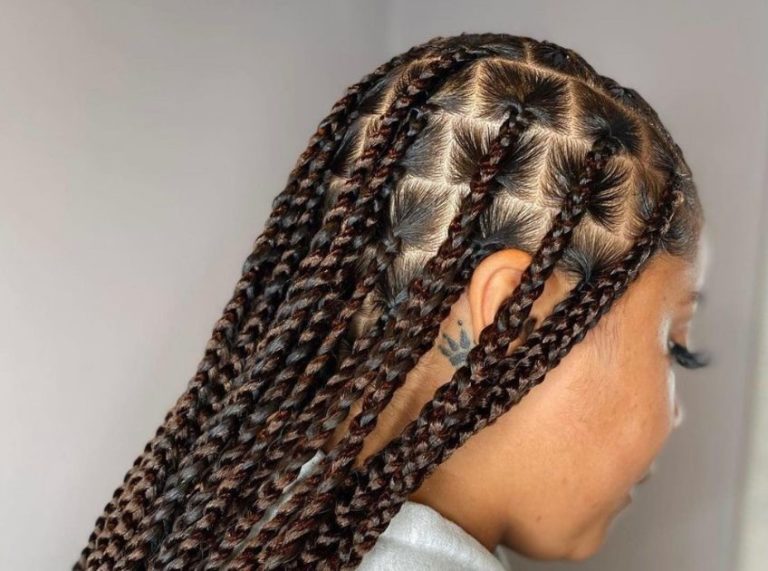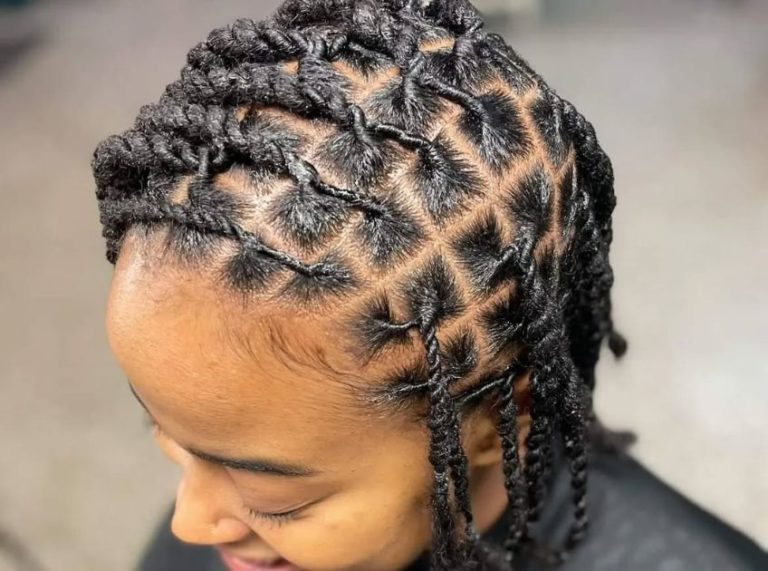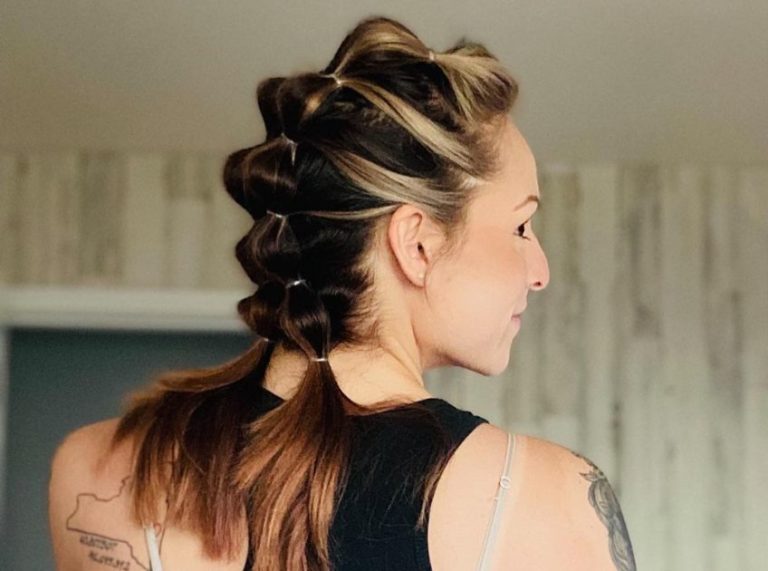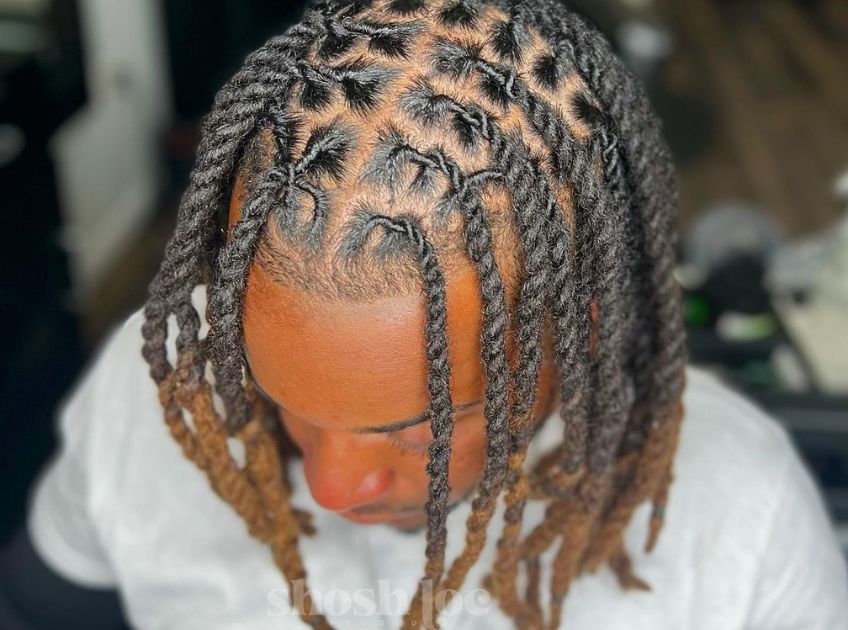
Important: This article is for informational purposes only. Please read our full disclaimer for more details.
Two-strand loc twists are one of the most versatile and beginner-friendly protective styles for textured hair. Whether you’re starting your loc journey or want a low-maintenance, natural style with a twist, this method blends style, strength, and simplicity. In this guide, you’ll learn what makes two-strand twists special, how to do them, when to retwist, and how to care for them like a pro.
Article Contains
What Are Two-Strand Loc Twists?
Two-strand loc twists are a loc-starting technique in which sections of hair are twisted using two strands, rather than the traditional method of coiling or braiding. Over time, these twists mature into permanent locs, forming a defined rope-like structure.
They are especially popular among loc beginners due to their ease of installation, defined appearance, and compatibility with natural coils or curls. The result is a stylish, natural look that’s perfect for all genders and ages.
Why Two-Strand Twists Are a Game-Changer for Natural Hair
Two-strand loc twists are more than just a hairstyle—they’re a lifestyle choice. Here’s why many people prefer them:
- Gentle on the scalp: Unlike tight braids or cornrows, two-strand twists cause less tension.
- Versatile styling: Easily worn up, down, or accessorized with cuffs and wraps.
- Starter locs made simple: Ideal for transitioning into dreadlocks without comb coils or interlocking.
- Frizz-friendly: As they mature, twists hide budding frizz better than other loc-starting methods.
Keeping Them Fresh: How to Maintain Your Two-Strand Loc Twists
Good maintenance helps preserve the look of your twists while encouraging healthy locking. Here are some essential care tips:
- Wrap your hair at night with a silk or satin scarf to avoid frizz and breakage.
- Moisturize regularly using a water-based mist or light leave-in spray to keep hair hydrated.
- Use natural oils (like jojoba or castor oil) on the scalp to avoid dryness.
- Limit manipulation—touching or pulling your twists too much can slow the locking process.
When to Retwist or Move On to Mature Locs
Knowing when to retwist or allow twists to evolve naturally depends on your hair goals.
- For starter locs: Retwist every 4–6 weeks to encourage uniform locking.
- If just wearing the style: Retwist when roots get puffy or twists unravel (usually after 2–3 weeks).
- Transitioning to mature locs? Expect full loc maturation within 12–24 months, depending on texture, maintenance, and retwist frequency.
Pro Tip: Once your locs begin to bud (a sign of locking), reduce frequent retwisting to prevent thinning or breakage at the roots.
How to Do Two-Strand Loc Twists Like a Pro
You don’t need to be a stylist to master this technique. With the right tools and techniques, you can create neat, long-lasting twists at home.
Tools and Products You’ll Need
Before you begin, gather these essentials:
- Rat-tail comb for parting (Buy Here)
- Clips to section and hold hair (Buy Here)
- Styling gel, locking cream, or twisting butter (Buy here)
- Moisturizing spray or leave-in conditioner (Buy Here)
- Natural oil for sealing moisture
Step-by-Step: Two-Strand Loc Twists Tutorial
Step 1: Clean and prep your hair
- Wash your hair with a residue-free shampoo.
- Lightly condition if needed, then dry thoroughly before twisting.
Step 2: Section your hair
- Part your hair into desired twist sizes using a rat-tail comb.
- Clip away sections you’re not working on.
Step 3: Apply product
Lightly spritz each section with a moisturizer, then apply twisting cream or gel to hold the twist.
Step 4: Twist it up
- Take a section, split it into two equal strands, and begin twisting them around each other tightly from root to tip.
- Coil the ends with your fingers or secure them with a bit of gel.
Step 5: Let them set
Allow the twists to air dry completely or sit under a hooded dryer.
Pro Tip: Twist in the same direction for every section to maintain a consistent, polished look.
Long-Lasting Care Tips for Two-Strand Loc Twists
To make your twists last and encourage healthy hair growth:
- Sleep in a satin bonnet to prevent moisture loss and frizz.
- Avoid over-washing. Cleanse with dry shampoo or scalp cleansers every 1–2 weeks.
- Don’t over-retwist—give your roots time to grow and settle naturally.
- Refresh with light oiling once or twice a week to maintain sheen and scalp health.
Frequently Asked Questions (FAQ’S)
1. How long do two-strand loc twists last?
A. They can last between 2–4 weeks if worn as a protective style. If used to start locs, they evolve over several months into mature locs.
2. Can I wash my hair with two-strand twists in?
A. Yes, but gently. Use a diluted shampoo and focus on the scalp to avoid unraveling, especially if the twists are new.
3. What’s the difference between two-strand twists and regular locs?
A. Two-strand twists are a method of starting locs. Over time, they fuse and form mature locs, while traditional locs may be started with coils or backcombing.
Final Thoughts: A Twist Worth Trying
Two-strand loc twists offer the perfect blend of style and function, whether you’re starting your loc journey or simply want a chic, low-maintenance look. They’re easy to install, gentle on your strands, and evolve beautifully over time. With the right care and commitment, they can transform from a temporary twist into a lifelong crown.
